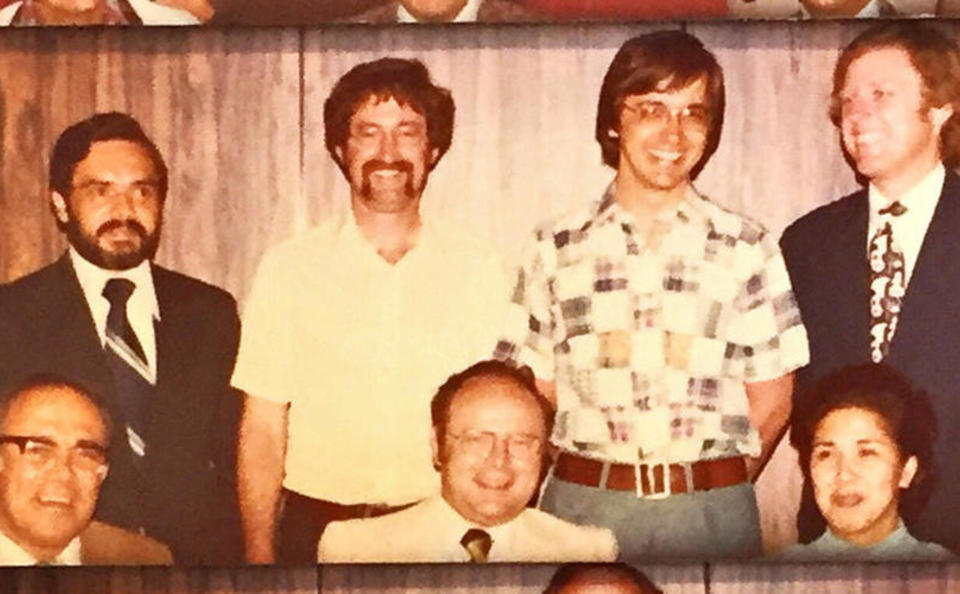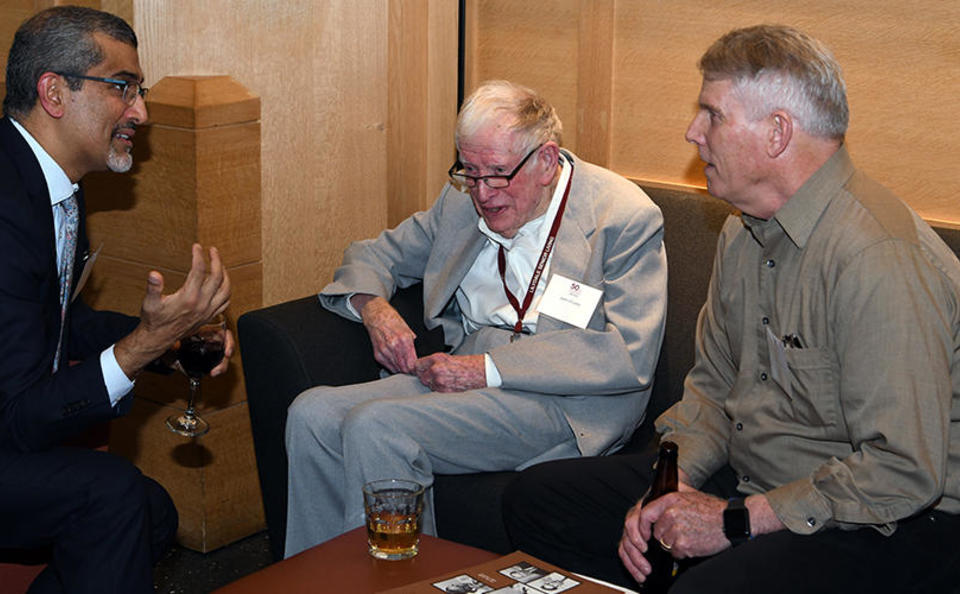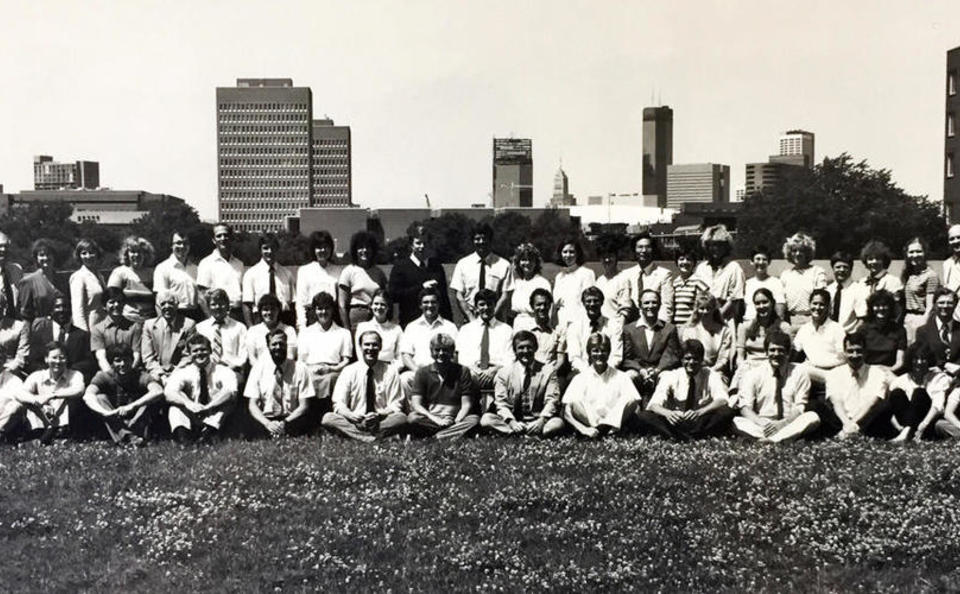Over 50 Years of Family Medicine and Community Health
The Department of Family Medicine and Community Health (DFMCH) celebrates more than 50 years of excellence in clinical care, education, and research. Over the last half-century, we have grown from a small division within the Medical School to an internationally renowned department that has graduated more family residents than any other program in the nation. Watch this video to learn more about the department.
On Friday, October 11, 2019, DFMCH alumni, faculty, staff, and community partners came together at the Minnesota History Center to celebrate the department's 50th anniversary. We continue to celebrate our history and look forward, with you, to the future of our field.
After World War II, the growth of sub-specialization in medicine created a need for more generalists. At the same time, public outcry mounted for accessible, cost-effective, and personal healthcare in rural areas and downtown areas. In response to both of these needs, the specialty of family medicine was born. In 1969, the Department of Family Medicine and Community Health became one of the first family medicine residency programs in the country.
The establishment of DFMCH as a department was the result of a sustained effort beginning in 1965, when then-president of the Minnesota Academy of General Practice (MAGP) President Herb Huffington, MD, wrote to the University of Minnesota Medical School dean regarding the need to train more general practitioners in Minnesota. The Medical School subcommittee convened the following year and issued a 35-page report on the need for family practice training in Minnesota.
After Dr. Huffington was appointed to the Board of Regents in 1967, a division of family practice was established within the Medical School, which ultimately became the department. In 1970, the family medicine residency program was accredited.
Over the last half-century, the department has grown with unprecedented speed. Some of our highlights include:
- Establishing the Medical School’s first longitudinal integrated clerkship, the internationally renowned Rural Physicians Associate Program (RPAP), as well as the Metropolitan Physicians Associate Program (MetroPAP)
- Bringing the Eli Coleman Institute for Sexual and Gender Health to our department in 1977, allowing us to house one of the largest clinical, teaching, and research institutions in the world specializing in human sexuality
- Sponsoring eight of the 12 family medicine residency programs in Minnesota, with the UMN Willmar Rural Program planned to start training in 2025.
- Offering fellowships in Sports Medicine, Hospice and Palliative Medicine, Sexual Health, Clinical Informatics, and Primary Care Behavioral Health
Today, the Department of Family Medicine and Community Health is a top-tier department in one of the premier medical schools in the country. We rank #1 in US family medicine programs in terms of residents graduated, and #1 in US medical schools in percent of students choosing family medicine. We are proud to boast a cohort of outstanding faculty, whose work in research has earned us the #2 rank in NIH funding among family medicine researchers. Over 80% of the “Top Doctors” named annually in Minnesota Monthly are our residents, faculty, and alumni.
Our graduates overwhelmingly choose to stay in Minnesota, serving 77% of the state’s counties as full-spectrum providers. Despite the continuing innovations throughout the decades, the DFMCH has remained firmly committed to providing full-spectrum, whole-person care to individuals, families, and communities, particularly those in underserved areas.
Share your family medicine story
For the Department of Family Medicine and Community Health’s 50th Anniversary year, we want to hear your most memorable story about family medicine! Perhaps it’s the wildest night on call as a resident, a special connection with a patient, or the feeling you had when your first study was published. Your story could be featured on our website or social media channels!



